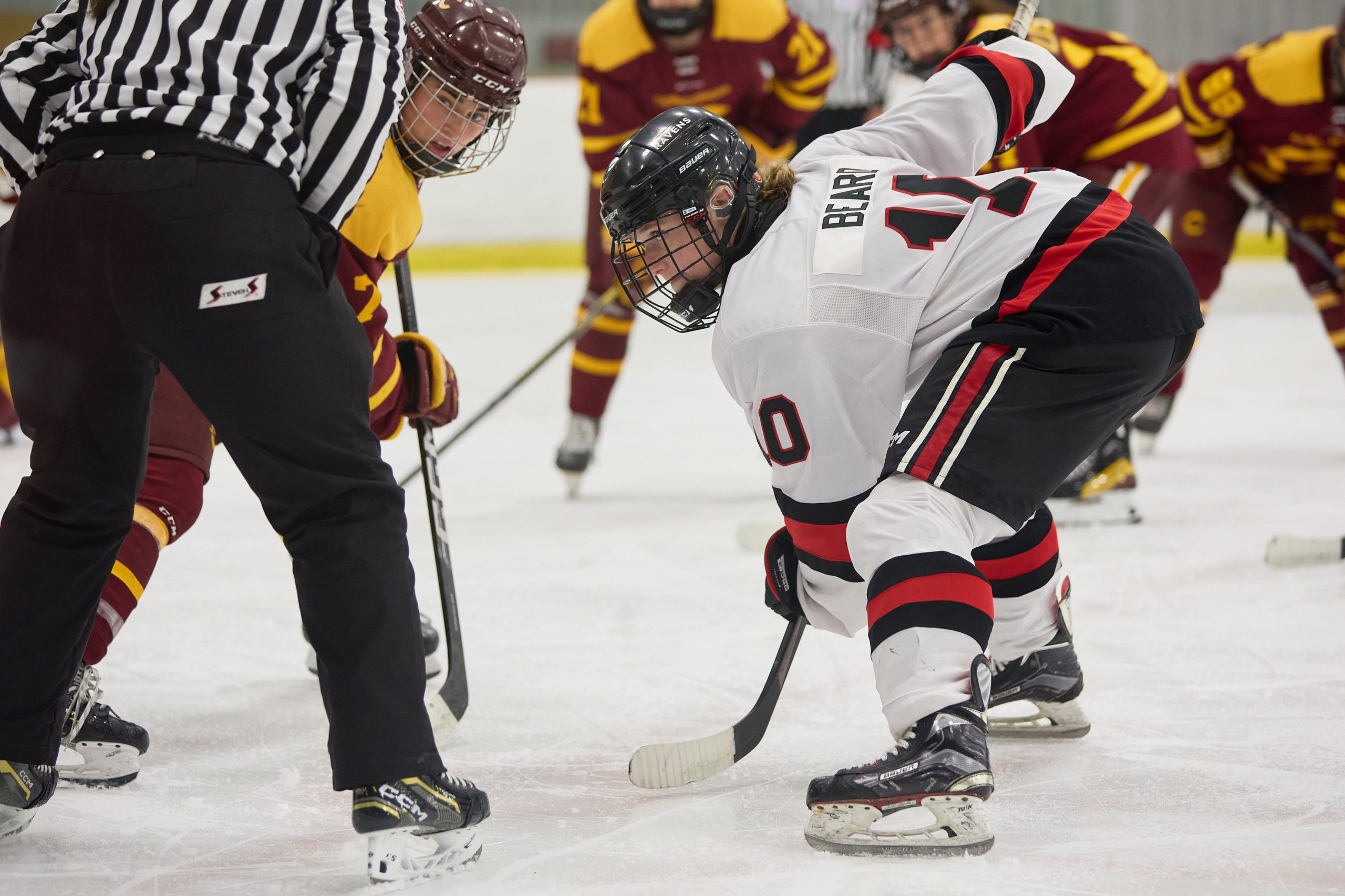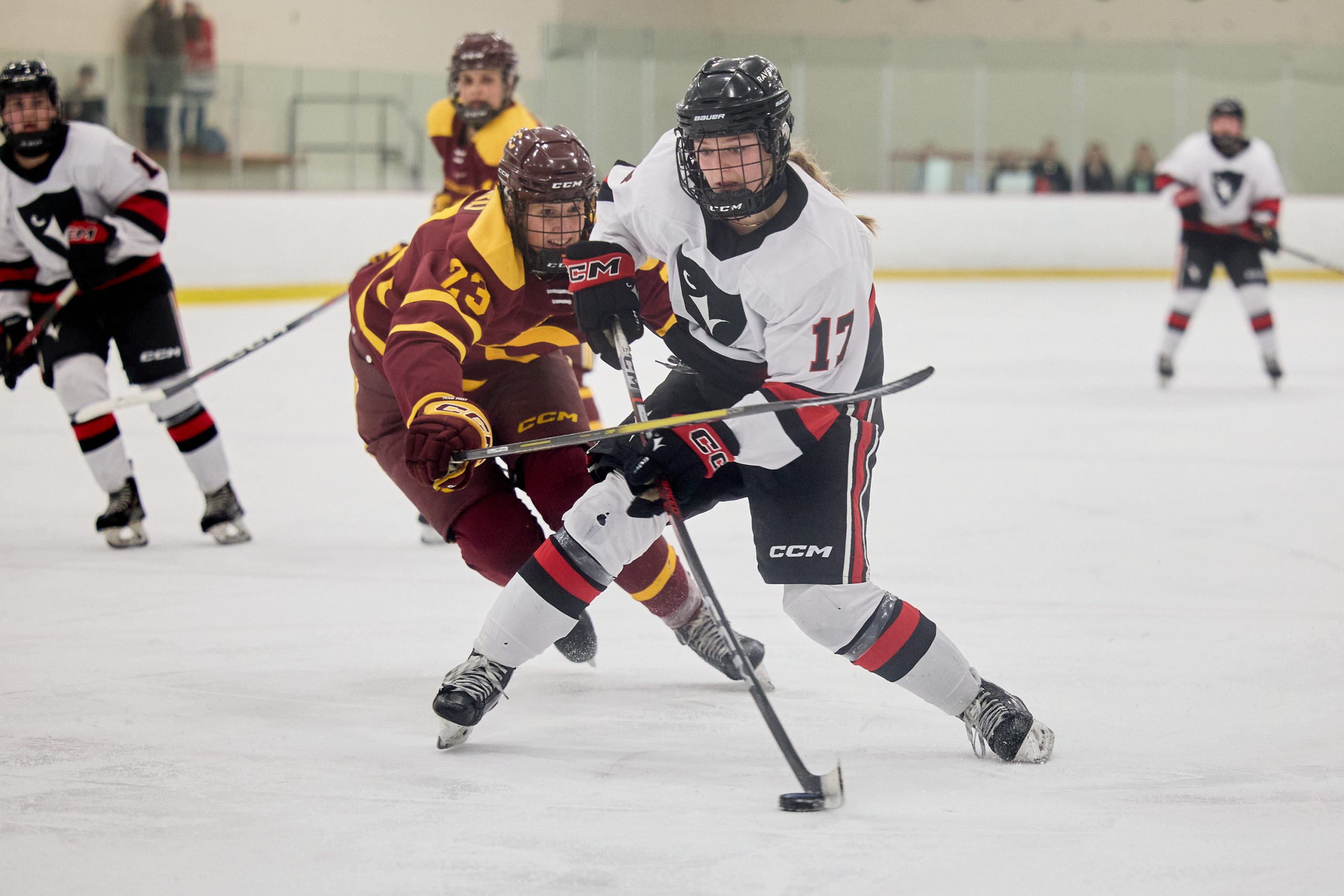Biology Grad Student's Thesis Explores Game Day Readiness in Female Athletes
As Women’s Hockey Gains Momentum, Nick Westcott Researched the Impact Resistance Training has on Game Day Performance with Ravens Varsity Players
By Ellen Tsaprailis
Nick Westcott is the first researcher to assess the effect of resistance priming on female athletes, and the implications of his data is important to strength and conditioning coaches who might seek to apply these practices with their professional female athletes.

Having recently defended his thesis titled, A Comparison of Different Modes of Morning Priming Exercise on Evening Jump, Lower Body Strength, and On-Ice Sprint Performance in Sub-Elite Female Hockey Players, Westcott is now implementing his research into his daily job as the Manager, Performance and Sport Science for Carleton University varsity athletes. In this position he develops and implements performance plans across all levels using evidence-based practices.
On game days, instead of the traditional morning skate, Westcott implemented controlled, resistant exercises in the morning to study his research methodologies. The female varsity hockey players taking part in his research showed this tactic resulted in improved metrics associated with on-ice success—but that its implementation needs to be tailored to the individual athlete and integrated as a part of their own individual strength and conditioning plan.
“What was so exciting about Nick’s project on the effects of game-day resistance priming was that it was directly related to his work as the strength and conditioning coach for the CU varsity athletes,” says Department of Biology Associate Professor Jeff Dawson, one of Westcott’s co-supervisors. “A key component of his professional practice is using evidence-based approaches to prepare athletes for competition. As such, his data has important implications for both his day-to-day work with his teams, and for any coaches interested in applying these practices with their athletes.”

Department of Biology Instructor Iain McKinnell, Westcott’s co-academic supervisor, says all of the previous research on this topic has been conducted on male athletes, which made Westcott’s angle unique.
“Nick’s study was the first we are aware of to experimentally assess the effect of resistance priming in female sub-elite athletes—our Women’s Varsity Hockey Team,” says McKinnell.
“Notably, all the previous research on this topic has been conducted on sub-elite/elite level male athletes, with little-to-no attention focused on how this impacts performance in sub-elite/elite level women’s sport. Nick piloted game day resistance priming sessions during an international tournament in 2019, a practice that was well-received by the athletes, who anecdotally reported that they felt it had been beneficial during game time.”
According to Westcott—there is a lot of research within sports performance—but within any sport it is a very complex system to discern the impact of many different inputs. “Context is important, and you’re not going to answer everyone’s performance problem or find a solution for everyone in one study.”
Wanting to dive further into how different stimuli impact female athletes, Westcott’s research showed that individuality was extremely important when making decisions around performance. Some athletes had a very positive response to certain stimulus whereas others had a negative response.
“The results of this study seem to suggest that some moderate to high-intensity morning activity on game day will likely support performance readiness come game time, however, providing options to fit the needs of individuals and allowing for autonomy may be the best supported option given the current body of literature,” Westcott concluded in his thesis.

Pursuing this type of research through a graduate program in Biology was a path that Westcott was motivated to persevere in.
“It was enticing, to not only get a master’s degree, but to use it to further my ability to discern scientific literature and apply the scientific process to our daily training environment,” says Westcott.
Expansion of Research Topics in Carleton’s Biology Programs
Westcott’s research fits in with a growing research area of the Department of Biology. Dawson explains that they are building a core of teaching and research interest centred around their Human Performance Lab (HPL), with courses in exercise physiology, human performance and biomechanics in both graduate and undergraduate projects.
“Nick’s project represented a very cool collaboration between the Department of Biology and the University Athletics department,” says Dawson. “A relationship that we view as important to the success of the HPL, and one that we will continue to strengthen and expand the opportunities for human performance-related research at Carleton.”
